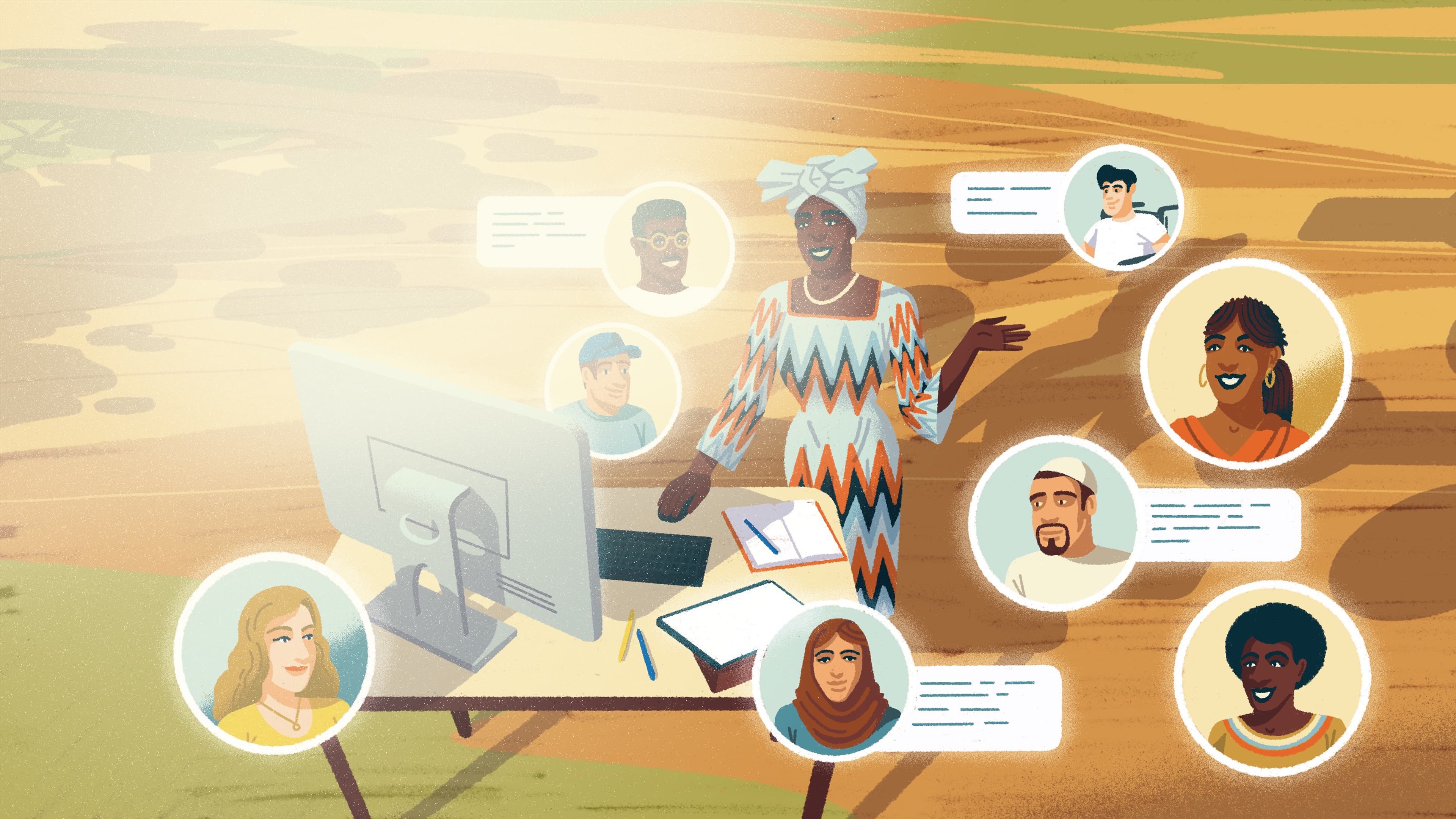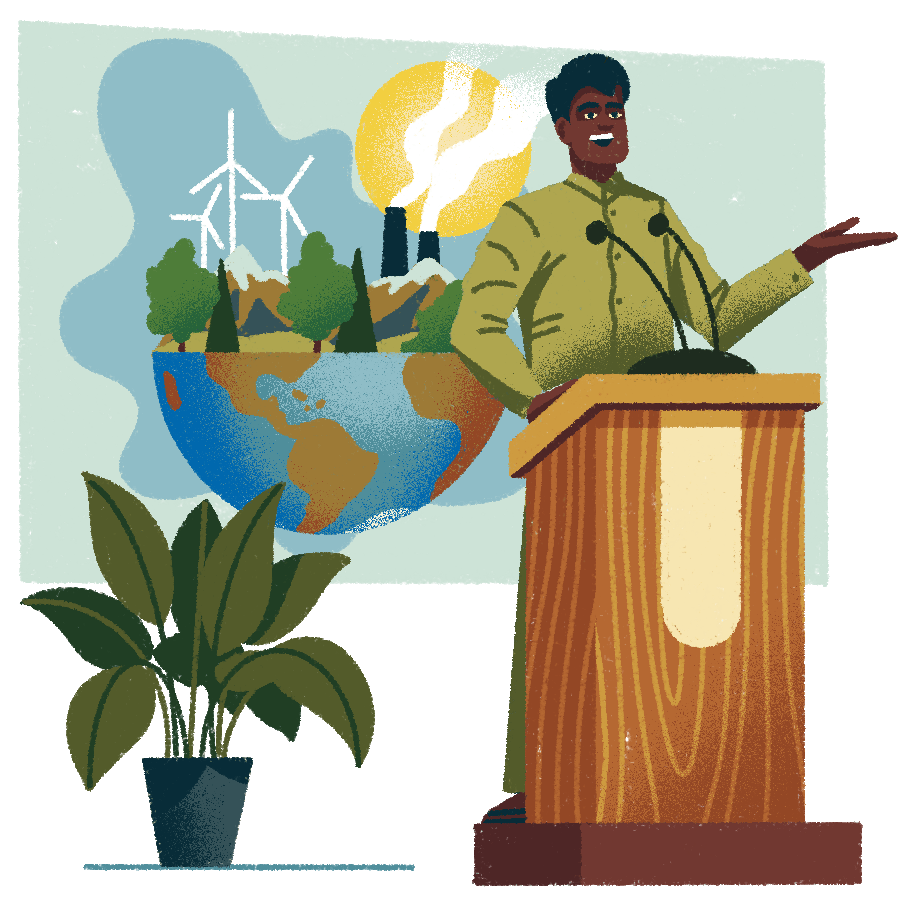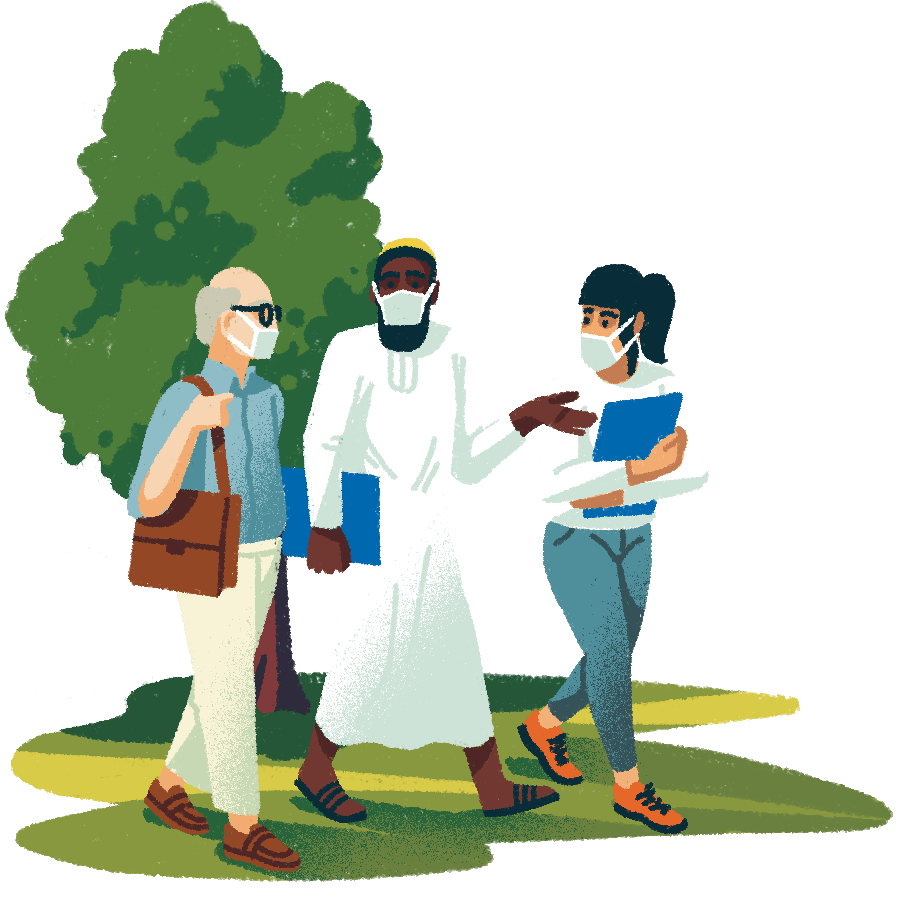
We advanced knowledge and learning to enable UN staff and partners at all levels and in all roles and functions to increase their substantive knowledge, core professional skills and functional competencies.
With many of our staff and relevant partners working remotely, COVID-19 caused a level of disruption that most were not prepared for. Remote working conditions allowed the College to provide a robust training plan of courses accessible from home, via telework, to advance the skillsets of UN staff and key partners.


UNSSC
rose to the challenge to:
Building a range of varied skills was core to the numerous offerings that were delivered online in 2020. In strengthening the collective capacities of UN system entities and partners, we remained true to our mission – ensuring that we support the implementation of the 2030 Agenda, the sustaining peace resolutions and management reform.
The rapidly changing nature of conflict and violence made it critical for UN personnel and
partners to be grounded in the complexity of the global landscape. The newly redesigned course,
Through vibrant virtual peer exchanges, the College advanced dialogue on the importance of
integrating conflict analysis into established procedures, understanding conflict indicators,
articulating good practices and quality criteria to conduct conflict analysis. Implementing
peace resolutions in complex environments requires specialized operational knowledge. In
partnership with the Department of Safety and Security, the College delivered the
From gaining insights into the causes and consequences of violent conflict, to elaborating on the dynamics supporting or undermining peace efforts, and the needs and interests of diverse stakeholders – our staff and partner organizations were ready to address emerging challenges exacerbated by the pandemic. Our learning offerings prioritized open-mindedness, sensitivity, respect and adaptation to local conflict contexts.
The College was instrumental in the delivery of learning solutions to enable nimble, effective, transparent, accountable, efficient and pragmatic leadership and management at the height of the pandemic.
The newly scoped
To build on the evaluation management capabilities of UN staff, the
College developed the
testimonial
Analyzing and Engaging Armed Groups
“One of the benefits that I think will have the greatest influence is that the course puts programming staff and security advisors into the same conversations about non-state armed groups – enabling them to learn from each other's perspectives so as to better understand WFP's full scope of considerations in complex contexts.”
- Erin Blankenship, Regional Peace and Conflict Advisor at the World Food Programme (WFP)

UNSSC
rose to the challenge to:
The College’s learning programmes were essential to improving climate literacy and helping
practitioners understand and address the impact of climate change. Two courses,
testimonial
The Paris Agreement on Climate Change as a Development Agenda course
““The course helped me to think more deeply about my research and my activities and exposed me to other people’s perspectives, including scientists from different cultures around the world with different challenges and political situations than mine.””
- Kirsten Florentine Weber, PhD student at the University of Sheffield
Digital learning accelerated quickly, even for learning institutions that were lagging behind.
Some leveraged various platforms and successfully reskilled staff for changing roles, while
other institutions faced a number of challenges. The College quickly responded by developing
offerings for training professionals. Two offerings focused on providing new digital skills and
virtual delivery methods to ensure continuous learning.
The new
testimonial
From In-classroom Training to E-learning: A Hands-on Workshop
“This programme has given me more self-confidence in using online tools and techniques. Delivering online workshops and webinars with an appropriate course design and new interactive tools has become an everyday practice since I attended the programme.”
- Agnes Novoszel, Senior Staff Development Associate at UNHCR, The UN Refugee Agency
Knowledge dissemination and skills development are core elements of the College’s mission. In
2020, we continued to adhere to these principles, delivering learning and knowledge on various
topics that support the achievement of the 2030 Agenda. The
To help managers pivot to meet the challenges of a disruptive time – the College developed the
testimonial
Anti-Corruption in the Context of the 2030 Agenda
“I have definitely gained knowledge and new resources to strengthen my work. This will undoubtedly help add value to the interventions we make from the team and expand and strengthen our work within our country office with our partners and stakeholders, as well as with other UN entities.”
- Patricia Pérez Prieto, Programme Officer at the United Nations Development Programme (UNDP)

To address the unique training needs of different stakeholders, we enhanced our varied learning
offerings through customized solutions designed to meet the organizational goals and learner
needs of different UN entities and partners.
The
The
The
Pervasive inequalities, visible in the extent to which women, young women and young men are able to participate in matters of peace and security, and in discussions on the 2030 Agenda, were exacerbated as the world responded to COVID-19. This argued for knowledge sharing and dialogue with different changemakers and youth actors across the UN system and beyond. At the College we developed initiatives that promoted dialogue and innovative solution mapping on the 2030 Agenda, sustaining peace resolutions management reform.
In a challenging year marked by the COVID-19 pandemic, The
The first virtual 9th
testimonial
UN Summer Academy
“Since the programme was convened online due to the pandemic, it made me realize the importance of leveraging technological solutions and building momentum over social media for sustainable actions and for a better world for youth, women, and all those marginalized.””
- Nadine Burbar, Deputy Chief Resilience Officer at the City of Ramallah